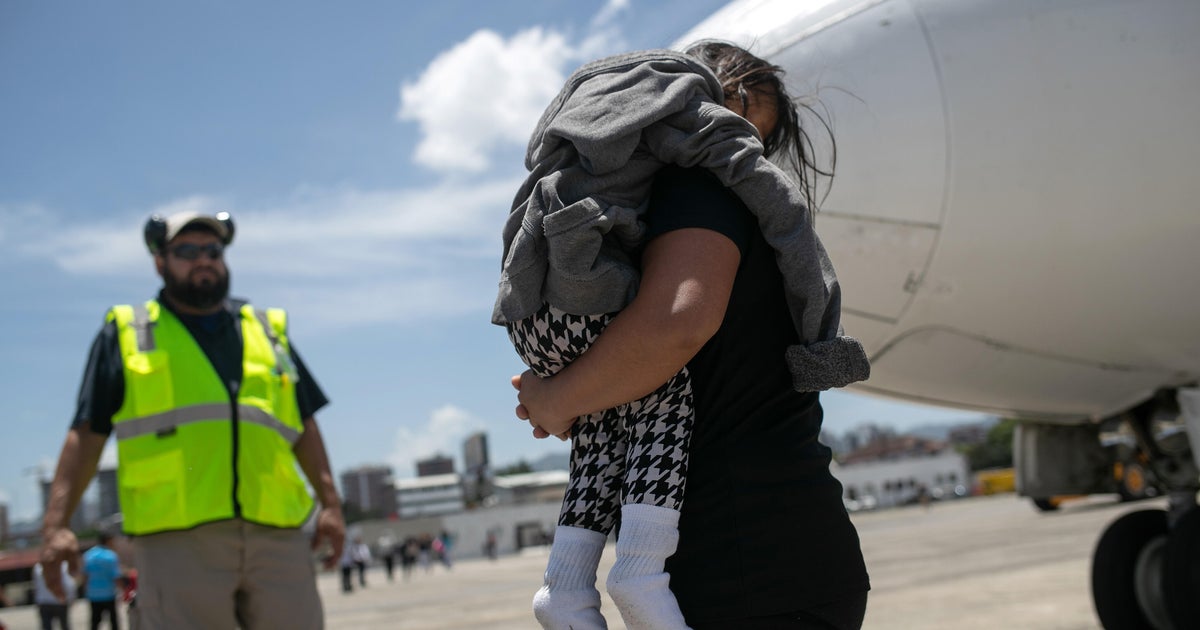
A federal judge on Sunday blocked the Trump administration from sending any unaccompanied migrant child to Guatemala unless they have a deportation order, just hours after lawyers alerted her of what they described as a hurried government effort to deport hundreds of children.
U.S. District Court Judge Sparkle Sooknanan issued her order as the deportation effort was fully underway, with planes with migrant children on board ready to take off from Texas.
Earlier Sunday, in the overnight hours, Sooknanan issued a temporary restraining order barring officials from sending a group of 10 migrant children between the ages of 10 and 17 to Guatemala, granting a request from attorneys who alleged the effort would skirt legal protections Congress established for these minors. She also scheduled a hearing in the afternoon to weigh the case’s next steps.
But Sooknanan abruptly moved up the hearing earlier on Sunday, saying she had been alerted that some migrant children were already in the process of being deported.
As that hearing got underway, Sooknanan announced she had just issued a broader temporary restraining order blocking any deportations of unaccompanied children from Guatemala and in U.S. custody who did not have a deportation order. She instructed Drew Ensign, the Justice Department representing the Trump administration, to quickly inform officials they had to halt their deportation plans.
Ensign acknowledged deportation planes had been prepared to take off on Sunday, but said they were all “on the ground” and still on U.S. soil. He said he believed one plane had taken off earlier but had come back.
At the request of Sooknanan, Ensign said he confirmed that the children on the planes would be deplaned and returned to the custody of the Department of Health and Human Services, which is responsible for caring for migrant minors who enter the U.S. without authorization and without their parents or legal guardians.
HHS houses unaccompanied children in shelters or foster homes until they turn 18 or until they can be placed with a suitable sponsor in the U.S., who are often family members.
Sooknanan conceded her temporary restraining order, which is set to last 14 days, is “extraordinary” but justified it on the grounds that the government had decided to “execute a plan to remove these children” in the “wee hours” of a holiday weekend.
In their lawsuit, lawyers for the group of Guatemalan children said the Trump administration had launched an effort to deport more than 600 migrant minors to Guatemala without allowing them to request humanitarian protection, even though U.S. law protects them from speedy deportations. They alleged the children could face abuse, neglect or persecution if returned to Guatemala.
Ensign, the Justice Department attorney, said the Trump administration was not trying to formally deport the Guatemalan children under U.S. immigration law, but instead repatriate them to Guatemala so they could reunite with relatives there. He said the Guatemalan government and the children’s relatives had requested the reunifications.
But lawyers for the children disputed the government’s claims, citing one case in which they say a child’s parents did not request any repatriation. They also said a law known as the Trafficking Victims Protection Reauthorization Act says unaccompanied migrant children who are not from Mexico must be allowed to see an immigration judge and apply for legal protections before any deportation effort. Some of the children facing return to Guatemala still have pending immigration cases, the attorneys said.
Ensign said the government’s legal position is that it can “repatriate” these children, based on authority given to HHS to reunite “unaccompanied alien children with a parent abroad in appropriate cases.”
Representatives for the Department of Homeland Security did not immediately respond to a request for comment on the deportation plans.
Neha Desai, an attorney at the California-based National Center for Youth Law who works with migrant minors, said the U.S. government was attempting to deport children with “already filed claims for legal relief based on the abuse and persecution that they experienced in their home country.”
“This is both unlawful and profoundly inhumane,” Desai added.
Most of the unaccompanied children who cross the U.S. southern border without legal permission hail from Central America and tend to be teenagers. Once in the U.S., many file applications for asylum or other immigration benefits to try to stay in the country legally, such as a visa for abused, abandoned or neglected youth.
As part of its larger crackdown on illegal immigration, the Trump administration has sought to make drastic changes to how the U.S. processes unaccompanied children. It has made it harder for some relatives, including those in the country illegally, to sponsor unaccompanied children out of government custody and offered some teenagers the option to voluntary return to their native countries.
The Trump administration has also directed agents from Immigration and Customs Enforcement (ICE) and other agencies to conduct “welfare checks” on children released from HHS custody, a move it has said is in response to disputed claims that the Biden administration “lost” hundreds of thousands of migrant minors.
There are currently roughly 2,000 migrant children in HHS care.
